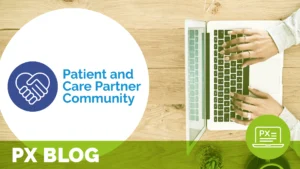Efficacy of a Communication Toolkit to Optimize Palliative Care Communication in the Surgical Intensive Unit

Data demonstrates patients benefit from the experience of specialty palliative care providers for advance care planning and prioritizing quality of life, regardless of diagnosis or stage of illness. Despite these benefits, many intensive care units (ICUs) show low utilization of palliative care. The purpose of this study was to evaluate the ability of a bedside communication toolkit to improve communication between family members and caregivers of surgical ICU patients and the ICU team, particularly in the context of medical updates and decision-making. A pilot bedside communication tool was completed by fifty family members of trauma and emergency general surgery (EGS) patients. Participants then completed a survey to provide feedback on the toolkit.
The majority of family members felt the toolkit helped them to formulate questions for the team and agreed they were more informed as a result of the toolkit. The majority disagreed the toolkit was emotionally upsetting to read through. The perceived benefit by family members/decision makers of surgical ICU patients offers many opportunities for further investigation and integration of the toolkit into practice in the ICU and beyond. A communication toolkit may improve communication between patient providers and family members, particularly in key medical decision-making discussions.
Related content
-
 Patient Family & Community Engagement | Staff & Provider Engagement
Patient Family & Community Engagement | Staff & Provider EngagementCo-Creating Change Using Storytelling
During this webinar members of the Global Patient and Family Advisory Board (GPFAB) will demonstrate how telling stories instead of creating guidelines for healthcare professionals will improve patient outcomes. The GPFAB has created a unique storytelling guide that will help healthcare professionals understand the principles of sharing patient/care partner lived experience through storytelling and how
Learn more -
 Patient Family & Community Engagement
Patient Family & Community EngagementHope for Healthcare
Members of The Beryl Institute’s Global Patient and Family Advisory Board wish you happy holidays. As 2024 draws to a close, we asked our members to jot down their hopes for healthcare as we welcome the upcoming new year. Tony Serge: My hope for healthcare is for leadership, providers, and staff to work together with
Learn more -
 Patient Family & Community Engagement
Patient Family & Community EngagementElevating Pediatric PX: Culture, Champions & the Power of Parent Advisors Episode Summary
This episode explores the evolution of a pediatric Patient Experience. Dive into core values, shared ownership, and practical strategies for building trust, driving change, and creating meaningful experiences for children, families, and staff.
Learn more
